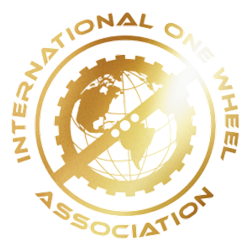On Monday, Nov. 21, Onewheel riders Javier Starks (a.k.a. OnewheelWing) and Don Gray (a.k.a. FollowDon) delivered nearly 5,000 letters to the U.S. Consumer Product Safety Commission (CPSC), explaining why Onewheels should not be recalled or banned.
Those letters contained thousands of stories from the keyboards of this community, sharing what riding Onewheel has meant to them. Physical health, mental health, resilience, passion, and human connection: These things and more make up the Onewheel experience, and those who have lived it have made it clear that they will not give those things up without a fight.
How Likely is a Onewheel Marketplace Ban?
IOWA spoke with an attorney specializing in this area, and this person noted that the CPSC argument is weakened by its lack of specificity.
The CPSC could continue to push for a recall and/or a marketplace ban, especially if there are new injuries or deaths associated with the safety deficiencies they’ve identified. However, these deficiencies have not been clearly defined by the commission at this time.
In August, the CPSC successfully initiated a recall of Onewheel GT footpads in response to reports of ghosting. This was a specific part of the product that was defective in a specific way. This time, the CPSC is citing a design defect across all Onewheel models, which is far more general–too general, our expert believes, to support a marketplace ban.
What is the unsafe behavior of units affected by the alleged defect? Do they shut off randomly mid-ride? Do they pitch the rider forward due to the design? Do they continue to operate after dismount? Without answering these questions, it will be difficult for the CPSC to take action.
What is the Path Forward for Onewheel?
The entire point of the CPSC is to collaborate with companies to identify and address product defects that put consumers at risk. When they issue a warning like this, it suggests they were not able to achieve that collaboration with the company, and indeed we can see this in their official statement:
“CPSC instructed Future Motion to stop selling the Onewheel and to advise its customers not to use this dangerous product. The company refused. Future Motion is unwilling to take appropriate action to fix a product hazard that has killed people.”
However, instructing a company to stop selling its entire product lineup can hardly be called an effort to collaborate. To find a path forward, CPSC will need to identify specific defects, and Future Motion (FM) may need to recall some specific units.
In other words, compromise will likely be required, and we at IOWA hope that the CPSC is willing to engage in that discussion with FM.
Our source said that the best course of action for FM is to put together a new safety protocol, design new features to address the risks identified by CPSC, and present an outline to CPSC about the implementation of those new rules moving forward, including potentially recalling products already on the market for the implementation of the new safety designs.
Future Motion could not be reached for comment at this time.

